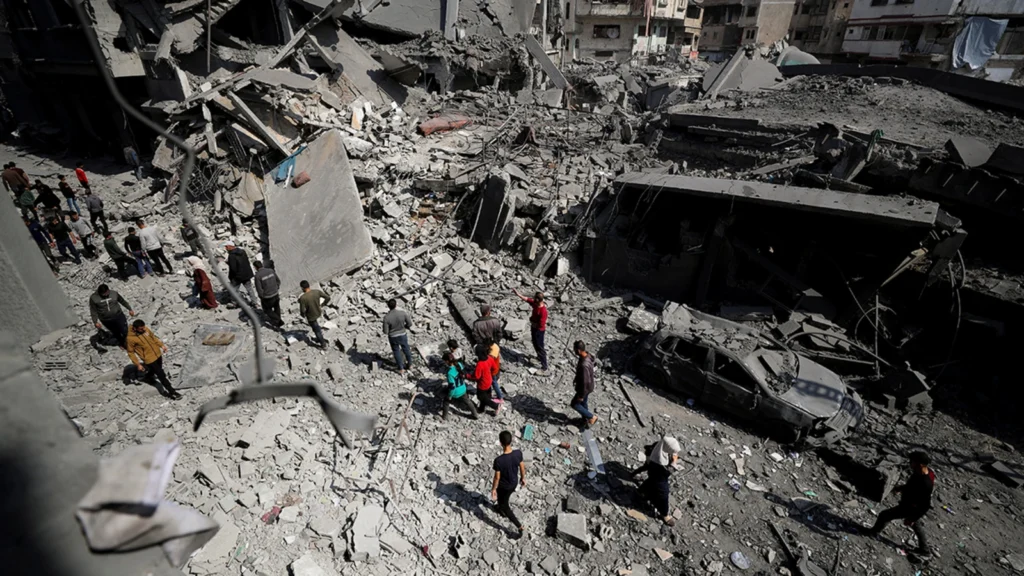The Gaza War and the Return of the Greater Israel Debate

By| Farooq Ahmad lone
Due to the ongoing Israel-Hamas war in Gaza and Israel’s repeated targeting of Lebanon, Yemen, Iran, Iraq and Syria to weaken the axis of resistance, the idea of Greater Israel is again at the focus in media, political and intellectual circles. Greater Israel, which conveys the meaning of great geographical size of the state of Israel, is repeatedly being used by establishment circles in Tel Aviv in their speeches and TV interviews. Analysts are contemplating on the concept of Greater Israel to answer questions like: is Israeli leadership really on a path to form Greater Israel, which territories it will contain, will Arabs resist Greater Israel, is Greater Israel really a biblical promise? As a realist one needs to keep in view the interests and actions of the state to predict future course of events instead of turning to theological predictions. Keeping in view the behaviour and actions of the Israeli state since its establishment, it is very clear that Israel is consistently making attempts to increase its territorial size and achieve regional dominance. At the same time, one cannot ignore the fact that the Israeli state is also making diplomatic attempts to attract Arab states towards normalisation of their relations with Israel, creating confusion in intellectual and policy circles of the Middle East about its real intentions.
The current situation, in which Israel is fighting Hamas in particular and the axis of resistance in general, while also launching attacks on territories of various Arab nations, is being seen as indicating Israel’s track of dealing with its neighbours and the Palestinian problem through conquest and might alone. Analysts are visualising this as Israeli attempts towards Greater Israel. Since October 2023, the government of Israel has repeatedly announced that it wants peace with its neighbours, yet at the same time declared it can strike them when it deems necessary. It seeks recognition from key Arab and Muslim states like Saudi Arabia and Pakistan, while demanding total demilitarisation of Hamas, the de-facto ruler of Gaza that was democratically elected in 2005. Israeli leadership has also expressed its will to destroy the axis of resistance, with direct references to Iran, again pointing towards cautious expansionist and hegemonic ambitions.
The continuation of the Gaza war with the declared goal of eliminating Hamas and establishing a pro-Tel Aviv administration in the Strip, alongside the expansion of settlements in both the West Bank and Gaza, signifies Israel’s long-term strategic goal: territorial expansion. Meanwhile, Israel is closely monitoring its neighbourhood to prevent the emergence of a nation that could counter its sovereignty or regional ambitions. Its strikes on Syria, Lebanon, Iran and beyond reveal another strategic goal—to assert itself as a strong, unchallenged regional hegemon. By simultaneously pursuing territorial gains and projecting military power, Israel is signalling that peace rhetoric does not negate its expansionist strategies.
Seeing the situation from a broader and realist perspective, one can conclude that Israel is on a determined path to achieve regional hegemony and expand territorially as much as possible. The present geopolitical scenario of the Middle East shows no signs of Israeli restraint. Days ago, even Qatar, which hosts the political office of Hamas, was bombed. This pattern of behaviour underscores the unpredictability of Tel Aviv’s actions, leaving analysts to conclude that in the current situation one can expect anything.
Author: Farooq Ahmad Lone. He can be reached at lonefarooqahmad80@gmail.com.






